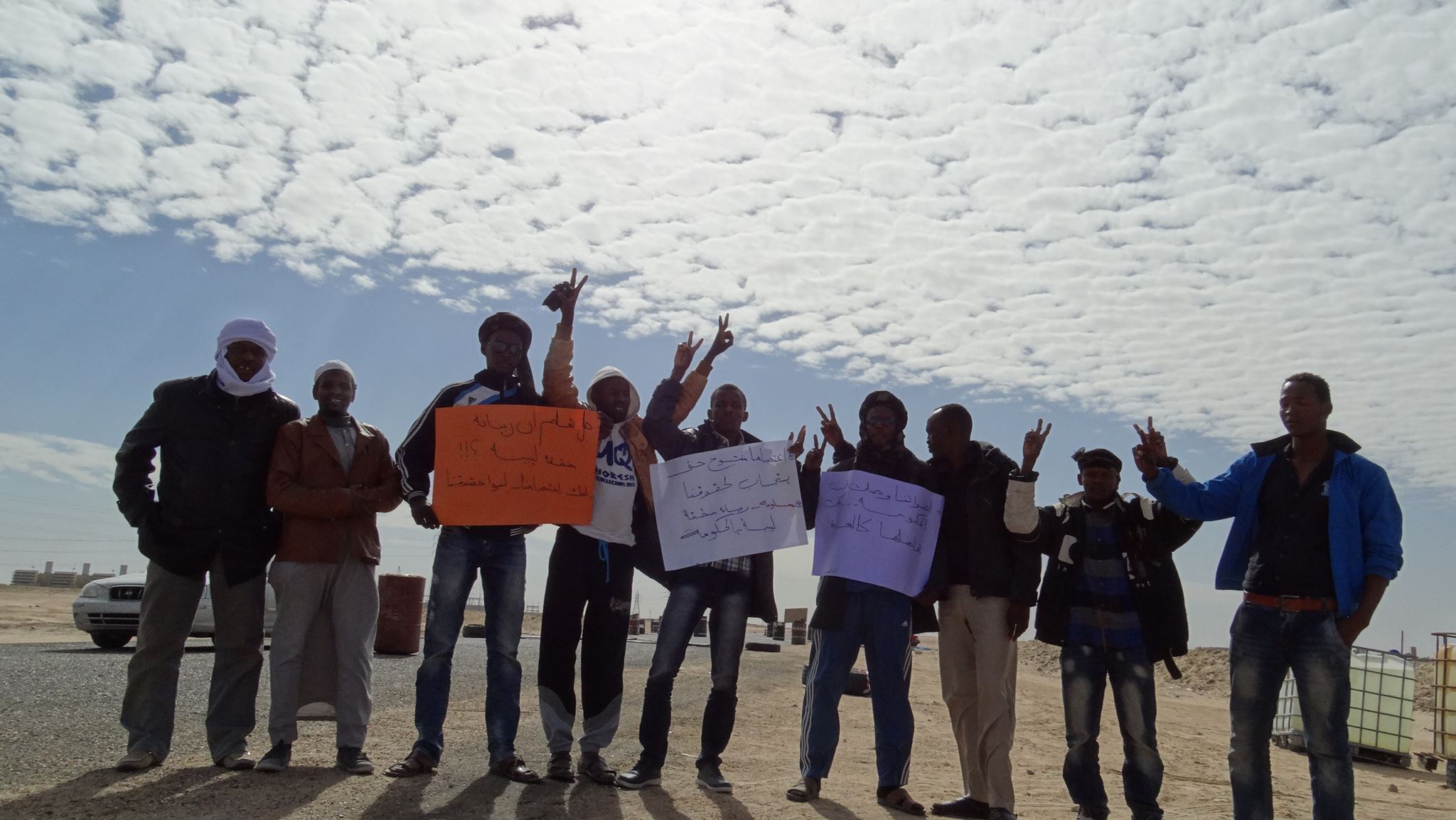By Jamal Adel.

Tripoli, 16 January 2014:
Tebu protestors threatening to restart their fortnight-long blockade of fuel trucks feeding the Sarir power station . . .[restrict]yesterday called off their protest following successful negotiations with the government.
Tebu representative, Husain Aya, told the Libya Herald that the protest had been called off despite the outcome of the talks not being entirely satisfactory. “Prime Minister Ali Zeidan only half agreed on some of our demands, promising us he would set up a committee to evaluate Tebu districts in Kufra,” Aya said. “Zeidan said he would decide whether it has to be sub-local council or not, which represents Kufra’s Tebus.”
Amongst other demands, protestors wanted the Tebu town of Rebyana be linked to the national electricity grid, have a municipal council of its own and a sub-municipal council be established for the Tebu districts in Kufra where, at present, there are no Tebu representatives on the council.
Many protesters remain dissatisfied. Defence Minister Abdullah Al-Thinni promised, when negotiations began, that the government would do everything in its power to meet Tebu demands. Kufra resident Fathi Hassan told this paper: “We should not have ended the demonstration until we were fully satisfied with the outcomes.” He added, on the subject of the creation of a committee to investigate Kufra districts, that Tebu residents in Kufra had seen the area evaluated frequently over the past 42 years with no changes ever seen on the ground.
Tebu cleric and demonstrator Hassan Trowey said, however, that the demonstration had been costly to the local community and the protestors who, he said, would not have lifted the blockade if they did not think their demands were being met. Trowey said that a dawn raid on Al-Sarir Farm in December, clashes in Ajdabiya and rising tribal tensions in Kufra were all partly linked to the blockade.
Demonstrators from Rebyana and Kufra began blocking Sarir power station at the end of November, demanding greater rights for the Tebu minority in the south of the country. The action blocked some 30 fuel trucks a day from serving the plant, forcing its closure. When negotiations began in December, protestors suspended the blockade as a show of good faith but were continuing to stage a sit-in and were threatening to again block the power station.
The head of Sarir power station, Hashim Al-Maliki, said the plant continued to work at an output of 250 MW, as it had since late December. He added that there had been no problems at the plant since it resumed production. [/restrict]







